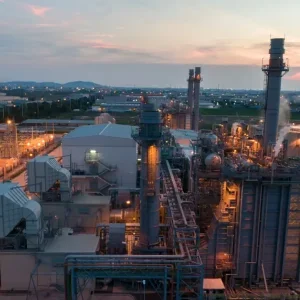The US Federal Energy Regulatory Commission (FERC) has issued a new 40-year operating licence to Duke Energy for the Catawba-Wateree hydroelectric project. The new licence allows the company to continue operating its 13 hydroelectric stations and 11 associated reservoirs located along the Catawba-Wateree River in North Carolina and South Carolina.
"The significance of this cannot be overstated," said Steve Jester, vice president of water strategy, hydro licensing and lake services for Duke Energy. "Receiving the new licence ensures the Catawba-Wateree River will continue to support and sustain communities across the Carolinas for at least the next 40 years. In addition, Duke Energy can now take action on the many benefits which will enhance the region and environment for generations to come," he said.
Receiving the licence is the result of an extensive three-year collaborative process with community stakeholders representing 85 organisations, including state and federal resource agencies, local governments, a Native American tribe, community organisations and private citizens.
The stakeholders held more than 300 public meetings to discuss river-related interests, review scientific study results and craft a collective vision to meet the region’s needs. The effort resulted in a Comprehensive Relicensing Agreement which FERC incorporated into the new license.
"The stakeholder teams get the credit for the successful outcome," noted Jester.
Under the new licence Duke Energy is allowed to continue meeting customers’ needs by securing the necessary resources to operate current and future power generation facilities including its hydroelectric sites, which are vital for meeting peak demand.
"The Catawba-Wateree River supports and sustains the vitality of the region," said South Carolina Senator Wes Hayes of York County. "The new licence is a testament to the importance of regional collaboration and working together to find solutions to meet our water and energy needs."
Requirements of the licence are tailored to the region’s priorities, including expanded recreational access and amenities and scheduled releases of additional water flow for recreation. It also addresses water quality enhancements, a new drought management protocol, long-range water supply planning, land conservation, expansion of aquatic habitats, protection of endangered species and preservation of historic and archaeological resources.
Duke Energy voluntarily implemented many measures early, while others will be put in place in the coming months and years. More than half of the 89 new or enhanced public recreation areas will be completed within approximately five years and the rest within approximately 20 years, pending the necessary FERC approvals.
The 843MW Catawba-Wateree hydro project was originally licensed for 50 years in 1958. Duke Energy filed the application to relicense the project in August 2006 but the application process was delayed by several challenges which were successfully resolved.






